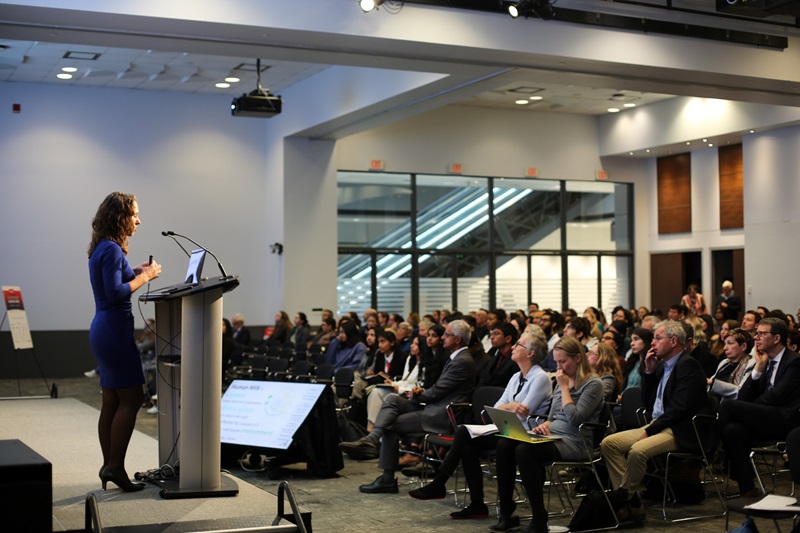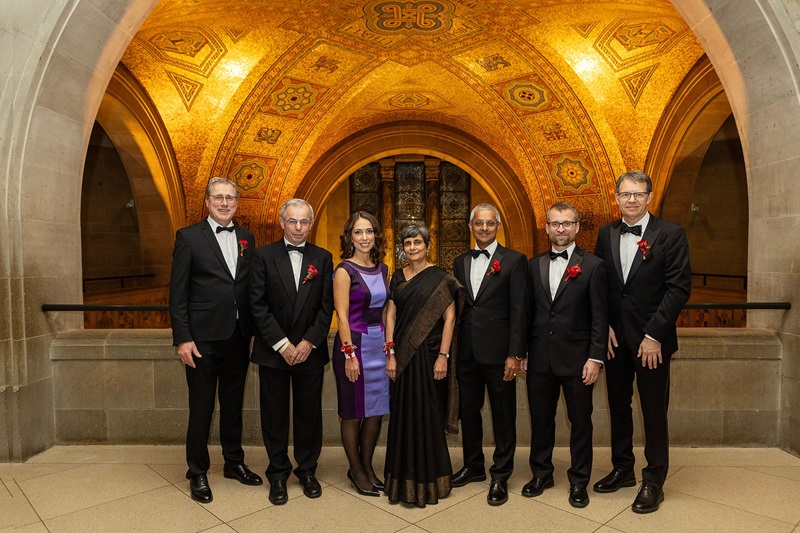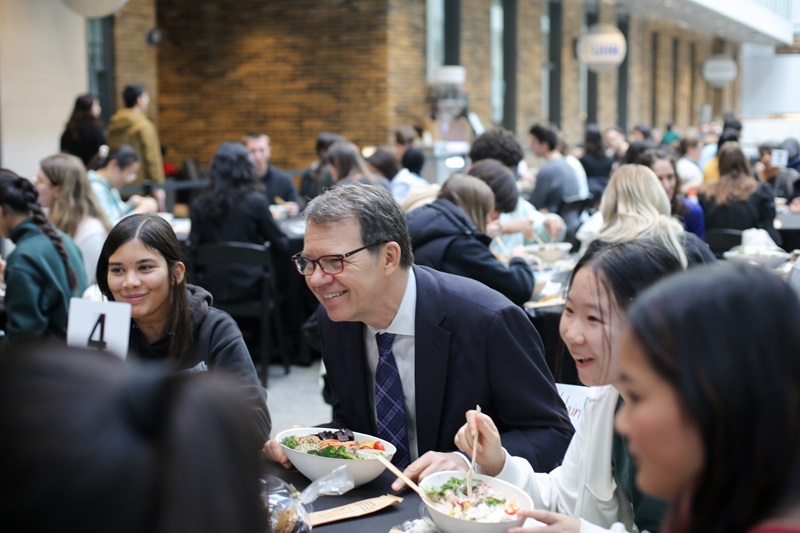Christian Landry
a8c38f53-c5ce-4e0c-81f3-59a729788e36.tmb-cfthumb_fb.png?Culture=en&sfvrsn=9bfb9571_1)
Dr. Landry is a first-generation university student from Cap-Chat, Gaspésie, Québec. He received a BSc and a MSc in biology from Université Laval with an honors thesis in developmental biology and a MSc thesis in population genetics. He obtained a PhD in organismic biology from Harvard University as a Frank Knox Memorial fellow and completed his postdoctoral training in systems biology and biochemistry at Université de Montréal. Dr. Landry started his independent position as a Canadian Institute for Health Research (CIHR) New Investigator and a Fonds de recherche du Québec – Santé Junior Investigator in 2009. In 2015, he was appointed Canada Research Chair (Tier 2) in Evolutionary Cell and Systems Biology, and in 2020, he was appointed Canada Research Chair in Cellular Systems and Synthetic Biology (Tier 1). He recently received the Université Laval excellence awards in teaching and mentoring (graduate students and postdoctoral fellows), the SMBE Margaret Dayhoff Mid-Career Award for outstanding contribution to research and the NSERC E.W.R. Steacie Memorial Fellowship Awarded to outstanding and highly promising scientists and engineers by the Natural Sciences and Engineering Research Council (NSERC) of Canada. In 2016, He received the Prix Summa (Research), Faculté des sciences et de génie, Université Laval, and in 2014, He was elected to the College of New Scholars, Artists, and Scientists of the Royal Society of Canada. Dr. Landry is leading a pan-canadian training program on the evolution of fungal pathogens funded by NSERC.
THE WORK:
Prof. Landry’s research group is integrating cutting-edge approaches in genetics, genomics, systems biology and bioinformatics to answer one of the most long-lasting questions in biology and biomedical research: how mutations change the way cells work and alter their performance. Understanding the principles by which mutations translate into phenotypes is at the core of human genetics and other fields such as evolutionary biology and biotechnology. The overarching goal of Prof. Landry’s team is to probe the robustness and function of cellular networks, with the long-term objective of better understanding how individual variation such as mutations cause changes in complex traits and, ultimately, diseases. Over the past six years, it has developed numerous high-throughput tools that allow the investigation of entire protein interaction networks, how these networks can be rewired by mutations, and how their past evolution may influence the outcomes of disease mutations.
THE IMPACT:
Christian Landry has brought an entirely new perspective to systems biology, in which networks, such as protein-protein interactions, and cellular signaling, are investigated in the context of historical evolutionary forces in order to better understand their fundamental properties. His work is of critical importance to health and human disease since all organisms evolve through the same principles, including pathogens impacting humans. His recent research has ranged from investigations of the evolution of resistance to antifungal drugs, host-pathogen arms races, and evolutionary trade-offs in cellular processes and networks, to systems biology studies of microbial interactions.
In the long term, systematic analyses of mutations causing variations in complex phenotypes such as drug resistance will enable the development of drugs that are less likely to lead to resistance, which is key in the context of limited treatment options. Prof. Landry was elected in the inaugural cohort of the College of the Royal Society of Canada; he received the NSERC EWR Steacie Memorial Award for early career researchers in 2017 and the SMBE Mid-career Award for outstanding contributions in 2020. In 2021, he received Laval University's Excellence Prize for teaching and mentoring to graduate students and postdocs. He is also contributing to changing the way science is published and communicated through his work as Senior Editor for eLife and editorial advisor for EMBO Review Commons, two organizations actively involved in remodelling the scientific publication landscape to make it more transparent and equitable.

.tmb-cfthumb_fb.png?Culture=en&sfvrsn=374218_1)




.tmb-cfthumb_fb.png?Culture=en&sfvrsn=87d51a9d_1)
